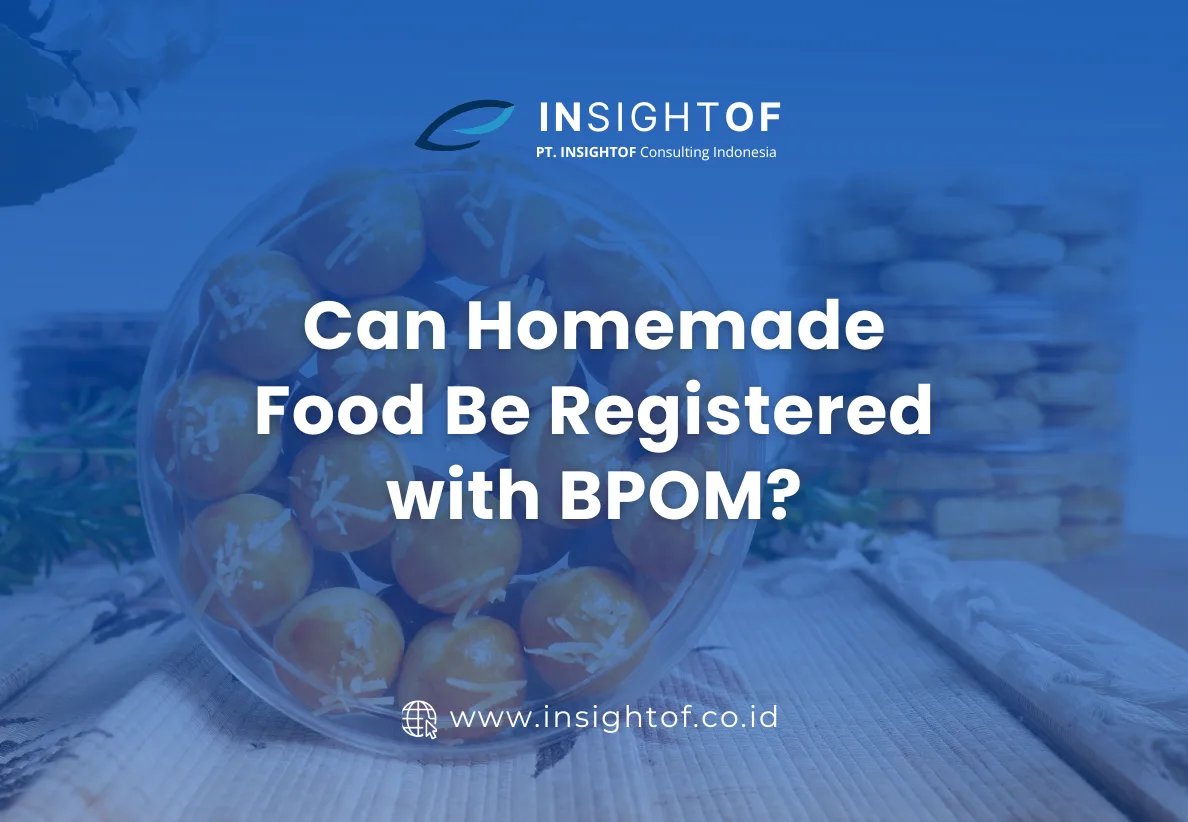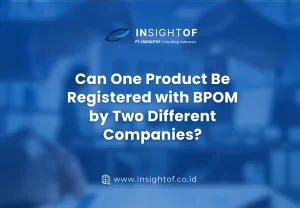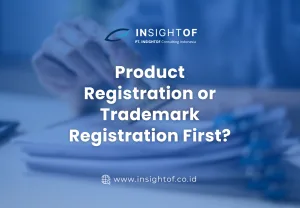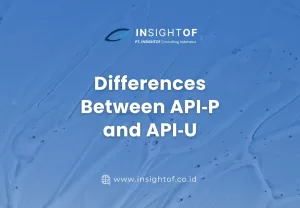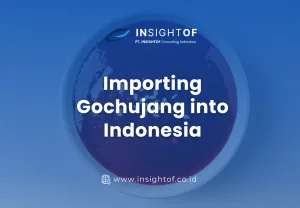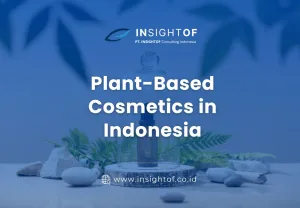If you are producing homemade food and want to sell it legally in Indonesia, you might be wondering whether it needs to be registered with BPOM (Badan Pengawas Obat dan Makanan). The answer depends on the type of food and its risk level. Here’s what you need to know about BPOM registration for homemade food businesses.

Is BPOM Registration Required for Homemade Food?
According to Peraturan Kepala Badan POM No. 27 Tahun 2017, all processed food products sold in retail packaging must have a distribution permit issued by BPOM or the local government, depending on the product’s category and risk level.
Types of Registration for Food Products
BPOM issues two types of distribution permits for food products:
- BPOM RI MD – For domestically produced food that meets industrial-scale requirements.
- BPOM RI ML – For imported food products.
For micro and small businesses producing homemade food, the government offers a simplified registration process through local authorities (Bupati/Walikota) via the P-IRT (Pangan Industri Rumah Tangga) permit.

The main differences between P-IRT (Pangan Industri Rumah Tangga) registration and BPOM RI MD registration lie in their scope, requirements, and regulatory authority. Here’s a breakdown:
1. Scope of Products
- P-IRT: Applies to home-scale food businesses or small-scale food production, typically processed food that is considered low-risk and does not require complex manufacturing.
- BPOM RI MD: Required for larger-scale food production with more advanced processing methods, typically involving factories and food that requires stricter quality control.
2. Regulatory Authority
- P-IRT: Issued by the local health office (Dinas Kesehatan Kabupaten/Kota) under the Ministry of Health.
- BPOM RI MD: Issued by BPOM (Badan Pengawas Obat dan Makanan), which oversees national food safety regulations.
3. Production Facility Requirements
- P-IRT: Can be registered for food production done at home, as long as it meets hygiene and safety requirements.
- BPOM RI MD: Requires a dedicated food production facility, separated from residential areas, with strict compliance to Good Manufacturing Practices (GMP).

4. Product Risk Level
- P-IRT: Covers only low-risk food products, such as dry snacks, traditional cakes, and bottled drinks without preservatives.
- BPOM RI MD: Covers both low and high-risk food products, including those that require specialized processing, additives, or fortification.
5. Registration Process & Requirements
- P-IRT:
- Business must be classified as home industry (Industri Rumah Tangga Pangan – IRTP).
- Food Safety Training certificate from Dinas Kesehatan.
- Simple documentation: business registration (NIB), food composition, label design.
- No need for factory audits.
- BPOM RI MD:
- Requires GMP, HACCP, or ISO 22000 certification.
- Audit and facility inspection by BPOM.
- Detailed documentation: food composition, production process, laboratory test results, packaging information.
- Stricter labeling requirements.
6. Validity & Renewal
- P-IRT: Valid for 5 years, can be renewed.
- BPOM RI MD: Valid for 5 years, but requires periodic inspections and compliance updates.
7. Where the Products Can Be Sold
- P-IRT: Mostly for local or regional markets (supermarkets, traditional markets, online sales).
- BPOM RI MD: Required for products that will be sold nationwide, in large retail chains, exports, and e-commerce platforms.

Requirements for BPOM Registration of Homemade Food
To register homemade food with BPOM under the MD category, businesses must meet the following conditions:
- Dedicated Production Area – The food production area must be separate from residential spaces.
- Production Process – The food must be processed manually, semi-automatically, or automatically using specific food processing technologies like UHT, pasteurization, or retort.
- Eligible Food Types – Registration is required for:
- Packaged processed food (both local and imported)
- Fortified food
- Food with mandatory SNI certification
- Government program food products
- Food for market testing
- Food additives (BTP)
Conclusion
While homemade food businesses must comply with food safety regulations, not all require BPOM registration. Small-scale homemade food producers can obtain P-IRT registration through local government offices, whereas larger-scale producers must register under BPOM RI MD. Ensuring compliance with BPOM regulations helps businesses operate legally and build consumer trust in their products.
For further assistance with BPOM registration, consult with regulatory experts at INSIGHTOF to start the registration process. Contact us at marketing@insightof.co.id.

